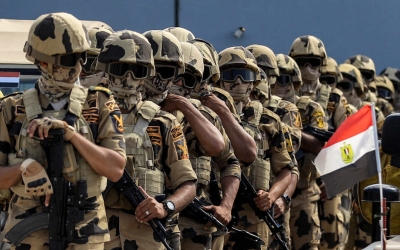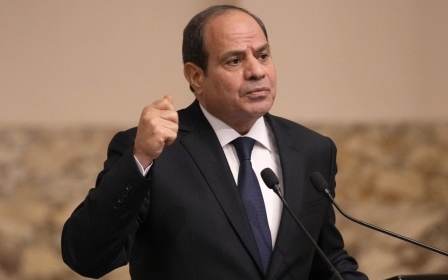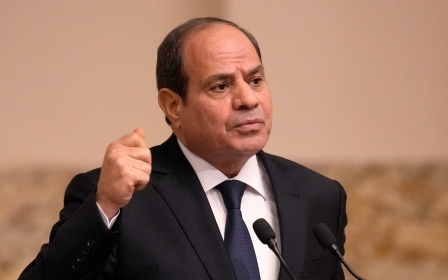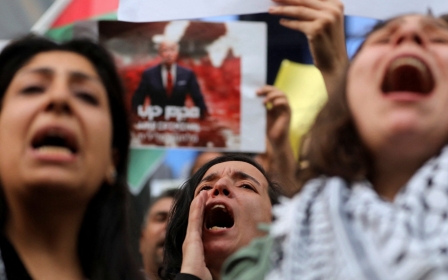Israel-Palestine war: Egyptian activists call for 'convoy of conscience' to break Gaza siege
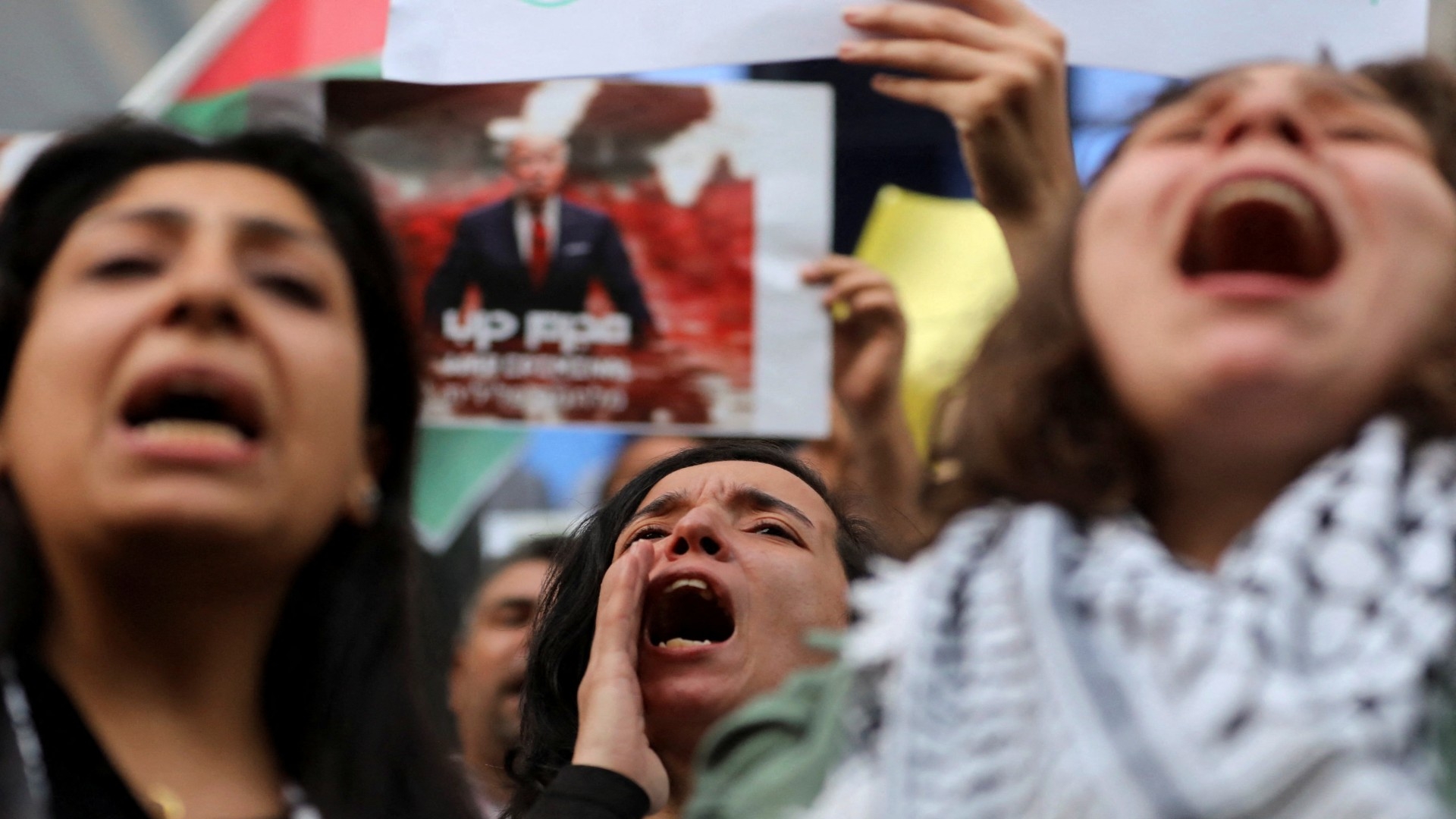
Egypt's Journalist Syndicate has called for a humanitarian convoy into Gaza as very little aid has been allowed to enter the besieged Palestinian enclave since the beginning of the Israeli onslaught more than a month ago.
The convoy, according to its organisers, would march from Cairo through the Rafah crossing, the sole gateway in and out of Gaza not directly controlled by Israel, into the strip between 17 and 24 November.
Since the beginning of the Israel-Palestine hostilities on 7 October, the Rafah crossing has been targeted by multiple aerial strikes, stifling the passage of aid into Gaza and exacerbating the rapidly deteriorating humanitarian crisis in the besieged enclave.
Aid trucks continue to be stranded outside the crossing waiting for Israeli permission and assurances that the convoys would not be targeted.
The journalists syndicate has circulated a Google form and statement via Signal calling for international NGOs and activists to join the “convoy of conscience” with the stated aim of opening the Rafah crossing to allow the passage of humanitarian aid into the enclave and let the critically wounded out of Gaza.
New MEE newsletter: Jerusalem Dispatch
Sign up to get the latest insights and analysis on Israel-Palestine, alongside Turkey Unpacked and other MEE newsletters
The statement also declared that the convoy would oppose “Israeli expulsion plans”, in reference to Israeli plans to forcibly displace Gaza's 2.3 million Palestinians to the Sinai desert.
"There has been no nation, institution, or coalition to protect the Palestinian people from the genocidal war now being wrought in Gaza,” the statement said. “There is only one shield left to stand up to this genocide: the free people of the world, who make up its conscience.”
One of the convoy organisers told Middle East Eye that the initiative would reflect the dominant feeling among Egyptians that their government "has not done its best" to pressure Israel to let convoys enter.
Follow Middle East Eye's live coverage for the latest on the Israel-Palestine war
“We are not sure why Egypt didn’t [assert] its sovereignty over its borders and let them enter,” the organiser said.
“We all feel deeply guilty in one way or another,” they added. “It's over a month now…we are [Gaza’s] neighbours and we can’t deliver aid to them.”
The Israeli-imposed siege on the strip has seen a rapidly spiralling humanitarian crisis, with Oxfam warning in a statement on 3 November that Israel is using “starvation as a weapon of war" against Palestinian civilians in Gaza.
According to Relief Aid, since the re-opening of the Rafah crossing for humanitarian aid on 21 October, the daily number of trucks crossing the border has dropped to 30 percent of its previous daily average prior to the crisis.
Tacit approval
The Egyptian authorities’ stance on the proposed convoy is currently unclear.
According to the organisers, the government has not responded to an open letter requesting safe passage from Cairo to Rafah.
'They [the government] didn't agree and they didn't reject [the convoy]. So for us as Egyptians, this is a sort of approval'
- convoy organiser
“They didn't agree and they didn't reject. So for us as Egyptians, this is a sort of approval,” one of the organisers told MEE.
In response to mounting international pressure on Egypt to accept an influx of refugees, state-owned media outlets called for demonstrations in designated areas to show solidarity with Palestine and support for Sisi’s leadership.
But many defied the government-approved demonstrations, with thousands rallying last month in Tahrir Square, the epicentre of the 18-day revolution of January 2011 that culminated in the resignation of then-President Hosni Mubarak.
Hundreds were reportedly detained following the protests, reflecting the Sisi government's restrictive policy towards unauthorised protests based on the widely denounced 2013 assembly law.
“In Egypt, the last month has been a little strange,” a convoy organiser told MEE. “Even though they arrested people in Tahrir…the protests [were also allowed] to go on for four hours without any problem.”
Egypt has rebuffed multiple appeals by Israel to absorb an influx of refugees from Gaza, with the US reportedly offering to write off chunks of the country’s debt in exchange.
On 24 October, Israeli plans to forcibly displace Palestinians from Gaza to north Sinai were leaked to the Israeli news site Calcalist.
But on 31 October, Egypt's Prime Minister Mostafa Madbouly reiterated his country’s rejection of this proposal, saying at a press conference: "We, the Egyptians, are ready to sacrifice millions of lives so that nobody approaches a grain of sand [in North Sinai]."
Since the Hamas-led incursion into southern Israel on 7 October, Israel has bombarded the besieged strip, killing 11,300 Palestinians including 4,630 children and 3,130 women, the government media office in Gaza said in the latest tally.
In Israel, attacks by Palestinian armed groups have left around 1,200 people dead, including at least 31 children, according to Israeli officials.
Middle East Eye delivers independent and unrivalled coverage and analysis of the Middle East, North Africa and beyond. To learn more about republishing this content and the associated fees, please fill out this form. More about MEE can be found here.


